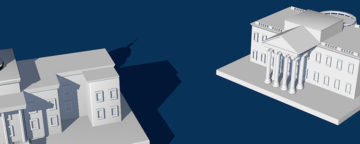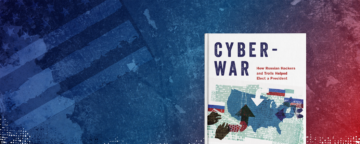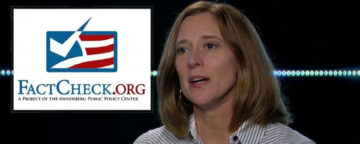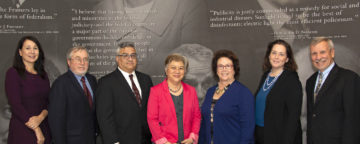In its sixth annual Citizenship Challenge, the Rendell Center asked fourth and fifth graders which Amendment in the Bill of Rights was most important and impactful.


In its sixth annual Citizenship Challenge, the Rendell Center asked fourth and fifth graders which Amendment in the Bill of Rights was most important and impactful.

In 2019, President Donald Trump again dominated the FactCheck.org "whoppers of the year" list of falsehoods and distortions on a variety of topics, including impeachment-related claims.

Two-thirds of the news stories analyzed last year debunked the holiday-suicide myth, the false claim that suicides increase over the holidays, according to new research from the Annenberg Public Policy Center.

At their third and final conference, members of the Transatlantic Working Group on content moderation met at Bellagio, Italy, to examine issues involving artificial intelligence and online transparency.

In a new study, researchers at the University of Pennsylvania find that scenes of unjustified and justified violence in movies activate different parts of the adolescent brain. When movie characters engage in violence that is seen as justified, there is a synchronized response among viewers in a part of the brain involved in moral evaluation, suggesting that viewers see it as acceptable for protection.

Although some researchers have attributed the rise in adolescent suicide to social media and smart phone use, researcher Dan Romer says economic and parental pressures are as likely to blame.

Kathleen Hall Jamieson's “Cyberwar” was awarded the Roderick P. Hart Outstanding Book Award by the NCA's Political Communication Division.

FactCheck.org and Hearst TV Inc. are partnering for the 2020 campaign season. Hearst will feature FactCheck.org's work on Hearst’s television and radio stations and websites.

Postdoctoral fellow Ozan Kuru is lead author of a new study finding that individuals are find polls more credible when their preferred candidate is leading.

Federal judges and court staff from Maine to Guam met in New York to discuss civics education initiatives at the first national conference devoted to the subject.